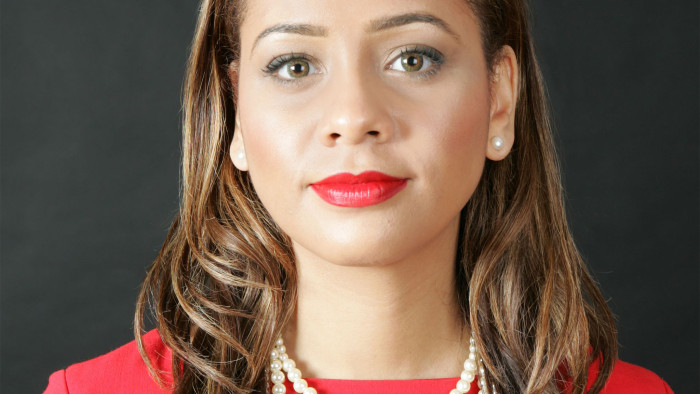Women in Business — Miranda Brawn

Simply sign up to the Business education myFT Digest -- delivered directly to your inbox.
Miranda Brawn is director of legal and transaction management at Daiwa Capital Markets and an MBA graduate of Westminster Business School in the UK, where she was a keynote speaker for the programme’s 30th anniversary in 2014. She is also a barrister and has studied political philosophy at Cambridge university.
Born and raised in London, Ms Brawn started working in investment banking at the age of 18 and has since been employed by investment banks such as Goldman Sachs, JPMorgan Chase, Citigroup and Deutsche Bank. Her experience ranges from operations to senior middle office management roles and the front office trading floor as a derivatives sales trader.
In her spare time, Ms Brawn is interested in philanthropic and diversity issues. She is a patron for Black British Academics, which aims to increase the number of black professors in the UK, and a board member of the Association of Women Barristers and Women in Banking and Finance.
1. Who inspires you?
Bill Gates, who has demonstrated he is one of the best-known entrepreneurs. I had the pleasure of meeting him when I was chosen to become a 2012 UK Global Poverty Ambassador in association with the Bill and Melinda Gates Foundation. This has helped to enhance healthcare and reduce extreme poverty globally while also expanding educational opportunities.
2. Why did you choose to study for an MBA?
In 2000, I chose my MBA in order to be recognised as a qualified and experienced professional while developing my business skills. The value of a MBA to women leads to increased confidence and contentment in their career with higher earning power, hence it is a great investment.
3. What would you do if you were dean of a business school for the day?
I would hold an event highlighting all the wonderful possibilities of business school to schoolchildren so they could aspire to become academics or simply learn about the basics of business which is important for many areas of daily life.
4. What is your biggest lesson learnt?
Be fearless by exercising self-belief, confidence and positive thinking. Don’t be afraid to ask for what you want and what you deserve. If you persevere you will get it. Don’t be afraid to stand out from the crowd. Embrace being different as this can be your competitive advantage. Don’t be afraid of rejection. This will build character and allow you to become “bullet proof” to the word “no” because you will hear the word “yes” when the right opportunity presents itself. Don’t be afraid to try new things and take calculated risks. I have diversified my professional activities and now have a successful portfolio career with transferable skills.
5. What advice would you give to women graduating this year from business school?
Use the uncertainty of the global markets to your advantage and learn to thrive in any environment by embracing change. It is important to set goals in order to know what you want and not stop until you achieve these. Staying in your comfort zone can make you complacent so learn how to evolve and expand on whatever you are doing right now. The only way to grow is to constantly challenge yourself by taking calculated risks. I would in fact suggest getting a portfolio of sponsors, mentors or your own “board of directors” with different skillsets to help guide you in your career and personal life.
6. How do you deal with male-dominated environments?
You have to be confident in yourself and in your own abilities to add value to the team and your organisation. This helps by persevering with any challenges presented to you.
7. Who is your ideal professor?
Sheryl Sandberg would be my ideal professor. She is one of the most powerful female billionaires in the world who knows how to command attention and succeed in a male-dominated industry. We need people like Sheryl to call attention to issues that are overlooked and challenge the status quo.
8. What is your favourite business book?
Think and Grow Rich by Napoleon Hill, my late grandfather’s original copy which he purchased in 1969, which was given to me by my mother. It teaches how to develop the drive and habits necessary to maximise your potential.
9. What are your top tips for networking?
Have your elevator pitch ready – who you are, what you do and how you can add value. Become a connector with a focus on giving versus getting – this should ultimately be a “give and take” relationship not just “take”. Listen more than you talk. You can learn more by asking the right questions. “How can I help you?” gives you an opportunity to add value immediately with a suggestion, a referral or an opportunity. It will establish you as a giver and potentially someone they want to know.
10. What are your future plans?
To learn and progress within my career while making a positive difference in the world. I would like to increase gender, race, age, disability and class diversity within the workplace, especially within the corporate boardroom and academia.
Comments